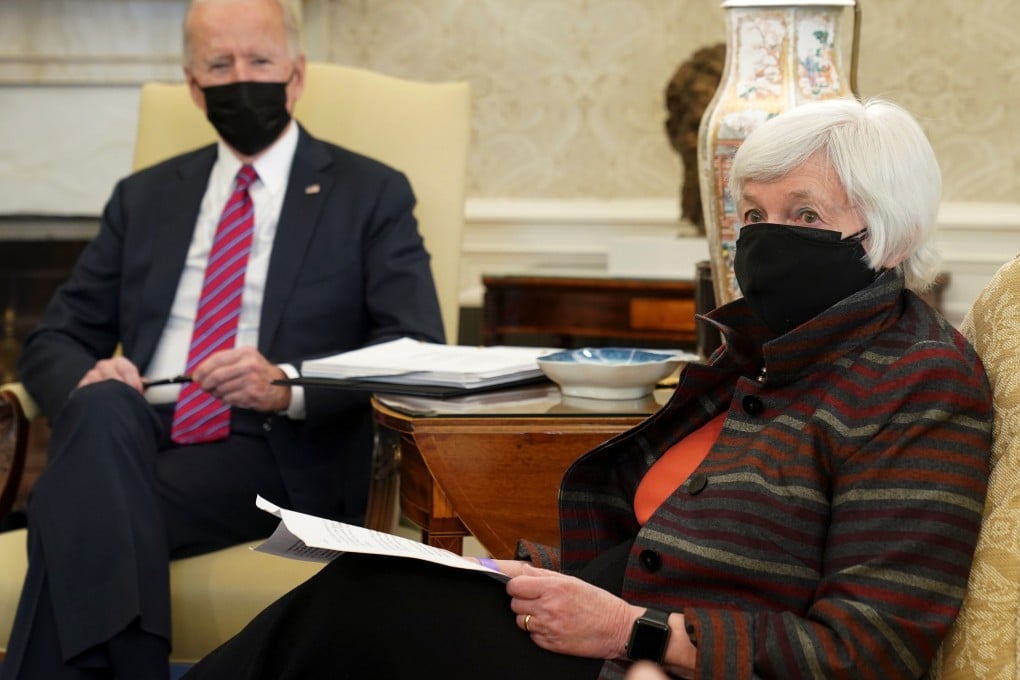US dollar-yuan exchange rate: China should not count on strong policy under Janet Yellen to ease currency pressure
- Former US Federal Reserve chair Janet Yellen was sworn in as the new treasury secretary for the Biden administration last week
- US dollar index has fallen by more than 10 per cent from its peak at the end of March last year, fuelling appreciation pressure on the value of the yuan

China should not count on the Biden administration and its new US Treasury Secretary Janet Yellen to actively support a strong US dollar in the near term, a move which could help ease upwards pressure on the yuan, analysts said.
The US dollar index has fallen by more than 10 per cent against a basket of major trading currencies from its peak at the end of March last year, fuelling appreciation pressure on the value of the Chinese currency.
“The conclusion that the US government will prevent US dollar depreciation may be due to the market over thinking [Yellen’s statement],” said Guan Tao, a former official with China’s foreign exchange regulator, the State Administration of Foreign Exchange.
Yellen also said that the intentional targeting of exchange rates to gain commercial advantage was unacceptable, and she would oppose such attempts.